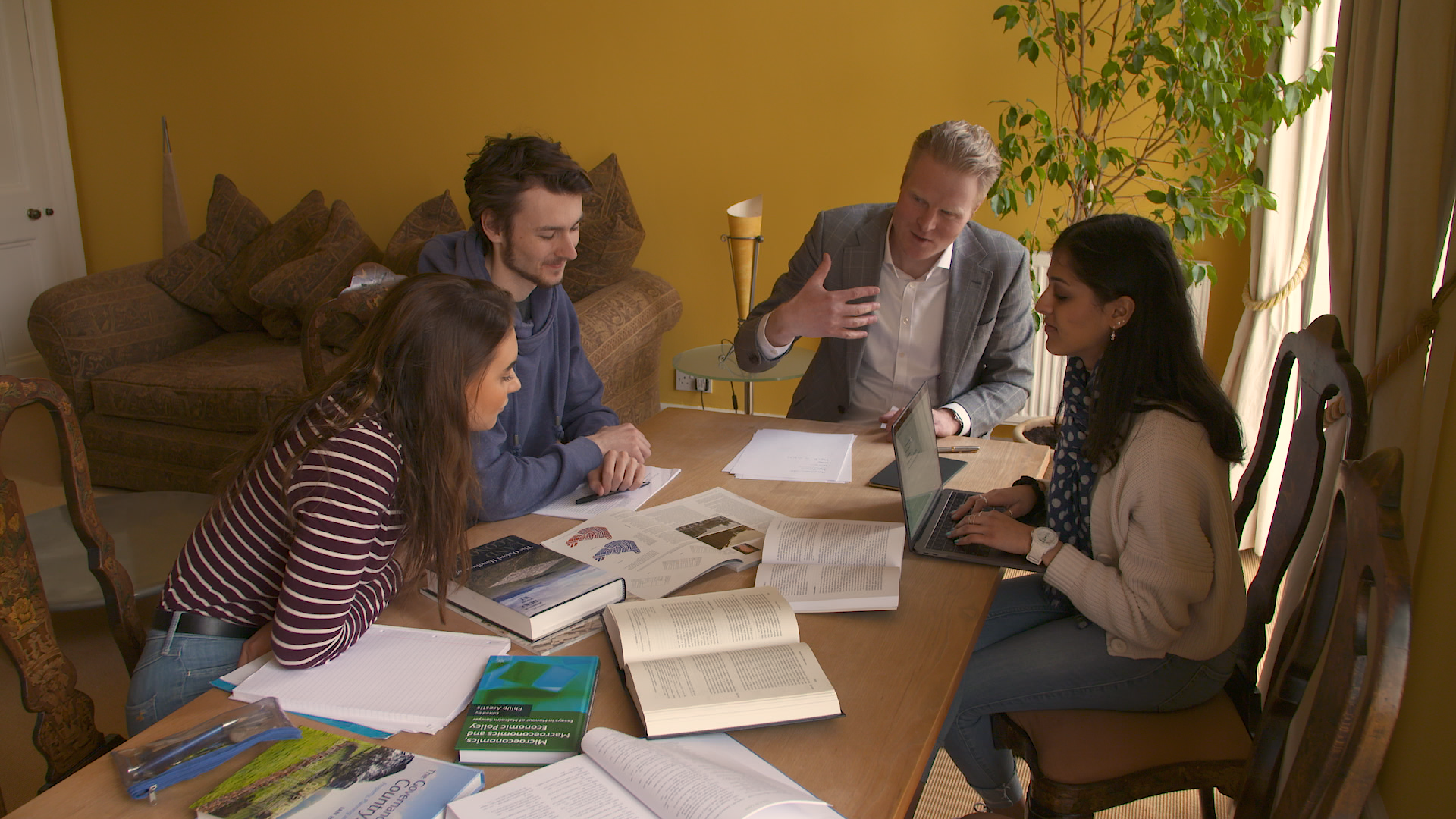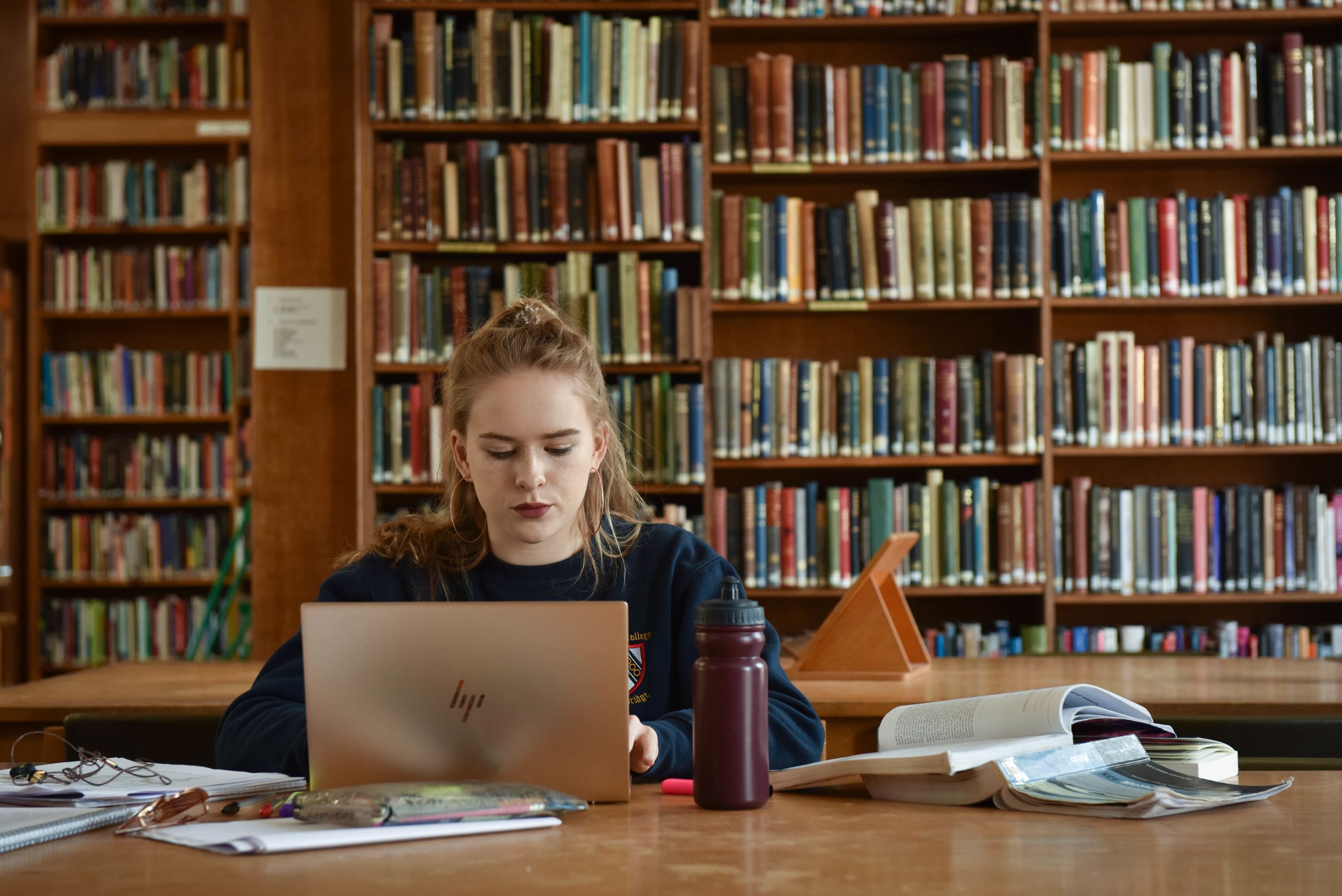Supervisions and modes of assessment at Cambridge

Cambridge is well-known for the excellence of our teaching and research, and the quality of our graduates. There are many different ways you will learn at Cambridge, through resources and facilities for independent study, as well as set periods of teaching. In this article you can read more about the different methods of teaching at Cambridge, what a usual term would look like, and hear from students about their teaching experiences.
“There is such amazing teaching quality in both lectures and supervisions that you really do learn your course at an incredibly high level and can push well beyond the fundamentals and into the detail of the things you're interested in.”
Daniel (Medicine)
How you will be taught
Lectures, seminars and practicals are arranged by the University faculty or departments, which students from all Colleges attend together. As well as these, your College will arrange supervisions for you as part of your weekly timetable. You can read more about these different ways of teaching below.
Lectures
These are a great starting point in your own research and are an opportunity to hear from leading academics, often working at the forefront of their field. Lectures are similar to a presentation focused on a particular topic and often part of a series of lectures covering an area in-depth. You’ll attend these alongside other students on your course, take notes, and can often pick up handouts/presentation notes following the lecture.
Seminars and classes
Seminars and classes are usually made up of a medium sized group of students and led by an academic. These are a chance for you to contribute to discussions and go into more detail about particular topics relating to your course.
Field trips, language courses, study abroad
Some courses provide opportunities for students to venture out of Cambridge – this could be as a field trip or study visit across the UK, or through time spent working or studying abroad. While there may be costs associated with these, there are sometimes funds available to provide financial support. You can read more about costs for your chosen course here.
Work Experience
There may also be opportunities on your course to complete a period of work experience, which can give you the chance to explore your potential career path. It can also help to develop your employability skills and build networks which could be of use to you after you graduate.
Practicals
Depending on your course, you might also be taught through practicals. These are also referred to as “labs” and are periods in which you work or learn in a laboratory instead of a classroom. For some courses, these practicals may be assessed.
Make sure to refer to the information on your chosen course to find out more about teaching and assessment methods – visit our website for a full list of our courses.
As well as these, you will also have supervisions that will make up a part of your study time.
Watch our video about student views on supervisions:
What are supervisions?
Supervisions are sessions made up of a small group – usually between one and three students as well as a supervisor who works with these students to deepen their thinking and explore topics further; they typically last for around an hour. The number of supervisions you have each week will vary depending on which course you're studying.
Each supervision may require some preparation beforehand; this could be reading, working through some set questions or writing an essay. You will then have the opportunity in the supervision to go over this work and gain feedback from your supervisor to develop your understanding further. Supervisions are not assessed, so they’re a great opportunity to test your ideas and interests.
Your supervisions are organised by your Director of Studies (DoS) and will change depending on what you’re studying at the time, so you won’t have the same supervisor for the whole of your course.
“The quality of teaching is excellent, especially with personal small-group teaching in supervision, and you meet so many people who are world leading experts in their subject. You also study with people who are just as enthusiastic about your subject as you are, so you learn even more!”
Alannah (Natural Sciences)
“Just being around so many different people and having in-depth conversations about so many varied topics has been a highlight. The course and teaching is intense, as expected, but very interesting and the supervision system is so useful to clarify topics I'm unsure on.”
Xiao (Computer Science)
Learning time
At Cambridge, the academic year is made up of three eight-week terms – while the terms are short, during this time it’s expected that you’ll work a minimum of 35 hours per week (this includes contact time as well as independent study); in some cases, this might be significantly more. The number of hours you spend studying each week will depend on your course.
The amount of work is likely to be more than you are used to, and you will find that there is much more self-directed and independent study required than at school or college.
This may sound very daunting at first, but every student adjusts to this workload in their own way and time. There are plenty of people at the University who can offer advice and support while you settle in.

“I was excited about the supervision system, because I find small group teaching really helpful for understanding things better, both through talking to my supervisor and my coursemates.”
Stella (Human, Social, and Political Sciences)
Visit our course pages to find out more about teaching at Cambridge.
The information in this article is correct at the time of publishing. For the most up-to-date information about studying at Cambridge, visit our website.
Last reviewed: July 2025






